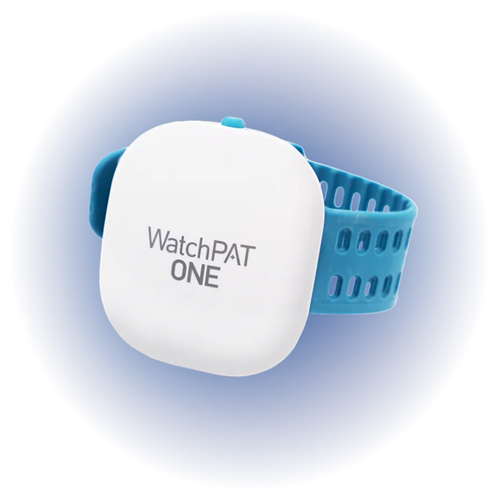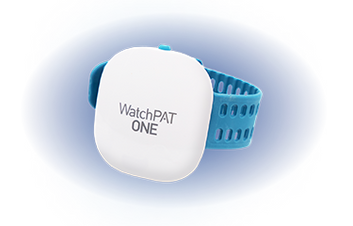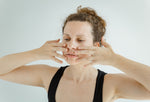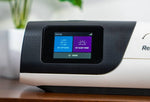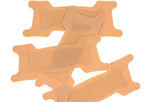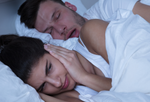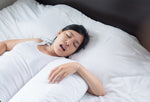On This Page
How to Stop Snoring
Our editorial process includes extensive measures to verify accuracy, provide clarity on complex topics, and present factual information. Read more
Advice on How to Stop Snoring

- 1 Identifying the root cause of your snoring—such as sleep position, alcohol use, nasal congestion, or excess weight—is essential for reducing snoring.
- 2 Simple home remedies like sleeping on your side, avoiding alcohol before bed, using nasal strips, and practicing mouth exercises can help lessen snoring in many cases.
- 3 If snoring persists, worsens, or is paired with daytime fatigue or breathing pauses, it may signal a serious condition like obstructive sleep apnea and should be evaluated by your doctor.
Home Remedies for Snoring
If your snoring is mild or infrequent, you may be able to reduce or stop snoring with some simple home remedies. They're relatively easy to implement, don’t require medical supervision, and may be successful in reducing snoring for some people.
While these strategies can benefit anyone who snores, they aren’t a substitute for proper medical treatment. It’s important to talk with your doctor, especially if home care approaches don’t help your snoring or if your snoring is severe.
Sleep on Your Side
Your sleep position — whether you sleep on your side, back, stomach, or a combination of these — can cause or worsen snoring. People who sleep on their back tend to snore the most, while side sleepers snore less often.
A little more than half of people with obstructive sleep apnea have a form of the disorder that's exacerbated by back sleeping, and research suggests that around 65% of people without sleep apnea may snore less just by changing their sleeping position. As a result, doctors sometimes recommend positional therapy as a way to treat snoring.
Products that can help you change your sleep position include vibrating devices to prevent back sleeping and special pillows designed to encourage side sleeping. Propping up the upper body may also help reduce snoring.
Elevate the Head of Your Bed
Sleeping with your head slightly elevated can help reduce snoring by keeping your airway more open during sleep. When you lie flat, gravity can cause the tongue and soft tissues in the throat to collapse backward, narrowing the airway and increasing vibration.
Raising the head of your bed by about 4 to 6 inches or using a wedge pillow can make breathing easier and reduce snoring frequency. Many adjustable beds also include a head-lift feature designed specifically for this purpose.
Avoid Alcohol Before Bed
Drinking alcohol or taking sedatives relax muscles in the airway, which may increase snoring and sleep apnea symptoms.
It takes about two hours to metabolize one alcoholic drink, so people who drink more than one drink may need to stop drinking several hours before bedtime to avoid effects on sleep and snoring.
Some people who take medication with sedating side effects do so at night to avoid daytime drowsiness or to help them sleep. If you take sedative medication and want to stop snoring, your doctor may be able to help you adjust your dosing schedule.
Address Nasal Congestion
Nasal congestion is a common reason for snoring, because it prevents air from flowing freely. A variety of conditions and situations can block the nasal passages, including structural problems like nasal polyps and a deviated septum, as well as sinus inflammation caused by colds, allergies, and bacteria.
The treatment for nasal congestion depends on the cause, but the most common options include nasal sprays, antihistamines, saline irrigation, decongestants, and using an air purifier.
While these treatments can be helpful for snoring due to allergies or sinus inflammation, they may be less effective for those with sleep apnea and structural problems, and its best to discuss treatment with your doctor. If you have a structural problem that's blocking your airway, your doctor may recommend having nasal or sinus surgery.
Snoring can be anything from a minor inconvenience to a more serious condition that requires medical treatment. If you think your snoring is mild or infrequent it can probably be reduced with at-home remedies.
Maintain a Healthy Weight
Snoring is closely linked with excess body weight. Obesity raises an person's risk for sleep apnea and snoring, because extra weight presses on the airway, narrowing the breathing passage and interfering with airflow.
Obstructive sleep apnea and weight share a complicated relationship, and researchers have yet to fully understand all of the factors at play. However, losing weight often has a significant positive effect on snoring and obstructive sleep apnea, particularly in those under the age of 50.
For people with obesity and obstructive sleep apnea, experts recommend eating a healthy diet and exercising regularly to reduce symptoms. For some people, weight-loss surgery may be appropriate. However, weight loss should also be combined with other treatments, such as CPAP therapy (see below for more).
Try Nasal Dilators or Snoring Strips
Nasal dilators are designed to widen your nasal passages. There are two main types: External nasal dilators, or nasal strips, are adhesive bands that are placed on the nose. Internal nasal dilators are placed in the nostrils.
Snoring strips are available over the counter, making them a good option for people who can't or don't want to take medications. Although they're inexpensive and readily available, their effectiveness is unclear.
Older research suggests that the strips could help certain people with nose disorders who snore, but they may be less helpful in those with sleep apnea or have other structural causes. Internal nasal dilators may work better than nasal strips.
Perform Mouth Exercises
Also known as myofunctional therapy, certain mouth exercises are designed to strengthen the muscles in and around the mouth and upper respiratory tract to reduce snoring.
For example, these movements may include pronouncing vowel sounds, performing swallowing and chewing motions, and moving the tongue against the teeth.
You can learn how to perform these exercises on your own using videos and apps. However, it's unclear if self-directed mouth exercises are as effective as those performed under the direction of a healthcare provider such as a speech therapist.
Quit Smoking
Smoking can irritate and inflame the tissues in your nose and throat, making snoring more likely. Over time, this inflammation can also lead to increased mucus production and swelling in the upper airway, further disrupting airflow during sleep.
Quitting smoking can significantly improve your breathing and reduce snoring. Even cutting back can make a difference, and combining lifestyle changes with professional support or cessation programs can help you achieve lasting results.
Practice Good Sleep Hygiene
Sleep hygiene is a series of recommendations intended to encourage restful sleep. While few studies have explored the link between overall sleep hygiene and snoring, there's some evidence to indicate a connection.
Certain sleep hygiene habits may play a more direct role than others. For example, the bedroom should be as dark as possible. Some evidence suggests that sleeping in a more brightly lit bedroom may cause a stress response that exacerbates sleep apnea symptoms.
Other ways to improve your sleep hygiene include keeping a consistent evening routine, avoiding electronics before bedtime, and getting plenty of exercise during the day.
Medical Treatments for Snoring
Medical interventions like anti-snoring mouth devices, continuous positive airway pressure (CPAP) devices, and surgery can make a difference for people who snore due to sleep apnea or problems with the shape of their nose, mouth, or teeth. However, these treatments are only available through a doctor, and some treatments for snoring may not be covered by insurance.
If the frequency or severity of your snoring concerns you, contact your doctor. After reviewing your medical history and symptoms, they can develop an individualized care plan that suits you. You may need to try multiple snoring remedies before you find relief.
Anti-Snoring Mouthpieces
There are two types of anti-snoring mouthpieces: Mandibular advancement devices push the lower jaw and tongue forward, while tongue-retaining devices hold the tongue forward using suction. Both are worn at night and are designed to keep the airway open.
Evidence suggests that mouthpieces help snorers with or without sleep apnea. However, the devices may not be suitable for some people, including those with few teeth or periodontal disease. Around one-third of people are unable to use anti-snoring mouthpieces, often due to discomfort.
Long-term use of anti-snoring mouthpieces has not been well-studied, and some people who use them may have side effects, such as pain, salivation, or dental problems. For these reasons, it's important to have your mouthpiece fitted by a specially trained dentist who understands your diagnosis and your doctor’s treatment plan.
Medical Devices
eXciteOSA is a daytime therapy that uses gentle electrical stimulation to strengthen the tongue muscles involved in keeping the airway open during sleep. The treatment involves placing a small mouthpiece on the tongue for about 20 minutes per day, rather than wearing a device overnight.
Research suggests that consistent use of eXciteOSA may help reduce snoring and improve symptoms of mild obstructive sleep apnea by targeting one of the underlying causes of airway collapse.
CPAP Therapy
CPAP machines prevent a person’s airway from collapsing by pumping pressurized air through a tube and into a mask worn over the nose or the mouth and nose. They're one of the more effective treatments for obstructive sleep apnea.
With regular use of a CPAP device, most people experience a major reduction in their sleep apnea symptoms, including snoring. However, an estimated one-third of people stop using CPAP due to side effects, such as:
- A stuffy or runny nose
- Dry mouth
- Claustrophobia
- Nosebleeds
- Discomfort in the chest muscles
Although CPAP therapy is considered effective for snorers who don’t have sleep apnea, insurance plans may not cover CPAP for these individuals. Let your doctor know if you have sleep apnea symptoms so they can run the necessary tests and arrange for a CPAP prescription if appropriate.
Surgery for Snoring
Usually, surgery is reserved for people who snore due to a structural problem with the nose, mouth, or respiratory system, such as soft palate problems, nasal polyps, a deviated septum, or enlarged tonsils.
While research indicates that surgery improves snoring in individuals whose nasal structures block airflow, there's no evidence that people without structural nasal problems should have surgery to prevent snoring. The most common surgeries for snoring include:
- Laser-Assisted Uvulopalatoplasty (LAUP): This procedure uses a laser to shorten or remove parts of the soft palate and uvula, helping widen the airway and reduce snoring vibrations.
- Ablation Therapy: Ablation therapy uses heat, radiofrequency energy, or other techniques to shrink excess tissue in the soft palate or tongue that can contribute to snoring.
- Septoplasty: Septoplasty straightens a deviated nasal septum to improve airflow through the nose, which can help reduce nasal obstruction and snoring.
- Tonsillectomy or Adenoidectomy: These surgeries remove enlarged tonsils or adenoids that block the airway, a common cause of snoring and sleep-disordered breathing.
When to Talk to Your Doctor
While home care methods may be sufficient for occasional or mild snoring, it's always best to rule out any serious problems if your snoring habits worry you.
For snoring that's frequent, very loud, or disruptive to your or your bed partner’s sleep, contact a healthcare provider to determine why you are snoring and work out a treatment plan. You should also contact a doctor if home care treatments do not relieve your symptoms.
It's extremely important to speak with a doctor if you have any symptoms of sleep apnea in addition to snoring, including:
- Pauses in breathing while you sleep
- Snorting or gasping in your sleep
- Morning headaches
- Feeling tired throughout the day
- Low mood, forgetfulness, and irritability
- High blood pressure that is resistant to treatment
A doctor will perform a physical examination, paying special attention to your nose and mouth. They'll also note any other health conditions you may have or medications you take. They may ask your bed partner for their observations.
If your doctor suspects that you have sleep apnea, they may refer you to a sleep specialist for a sleep study, in which they measure your breathing and other signs while you sleep. Based on the results, your health team can develop an individualized care plan to help you stop snoring and treat any related conditions.
Frequently Asked Questions
Does mouth tape stop snoring?
Mouth tape can sometimes help reduce snoring that's caused by mouth breathing by encouraging nasal breathing instead. However, it’s not effective for everyone and shouldn’t be used if you have nasal obstruction, allergies, or sleep apnea. Before trying mouth tape, italk to your doctor to make sure it’s safe and appropriate for your situation.
Does CPAP stop snoring?
Yes. CPAP therapy is one of the most effective treatments for snoring related to obstructive sleep apnea. The steady flow of pressurized air keeps your airway open throughout the night, preventing tissue vibration that causes snoring. Even for people who snore without sleep apnea, CPAP can help reduce or eliminate snoring when other methods don’t work. However, it's usually not covered by insurance in these cases.
How do you stop someone from snoring?
If a partner or family member snores, encourage them to start by changing sleep position, avoiding alcohol before bed, and treating nasal congestion. Weight management and good sleep hygiene can also help. If the snoring is loud, persistent, or accompanied by pauses in breathing or daytime fatigue, it may be a sign of sleep apnea, and a home sleep test or medical evaluation is recommended.

